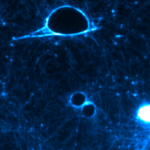Lien vers Pubmed [PMID] – 28974033
Toxins (Basel) 2017 10;9(10)
The goal of the AntiBotABE Program was the development of recombinant antibodies that neutralize botulinum neurotoxins (BoNT) A, B and E. These serotypes are lethal and responsible for most human botulinum cases. To improve therapeutic efficacy, the heavy and light chains (HC and LC) of the three BoNT serotypes were targeted to achieve a synergistic effect (oligoclonal antibodies). For antibody isolation, macaques were immunized with the recombinant and non-toxic BoNT/A, B or E, HC or LC, followed by the generation of immune phage-display libraries. Antibodies were selected from these libraries against the holotoxin and further analyzed in in vitro and ex vivo assays. For each library, the best ex vivo neutralizing antibody fragments were germline-humanized and expressed as immunoglobulin G (IgGs). The IgGs were tested in vivo, in a standardized model of protection, and challenged with toxins obtained from collections of strains. Protective antibody combinations against BoNT/A and BoNT/B were evidenced and for BoNT/E, the anti-LC antibody alone was found highly protective. The combination of these five antibodies as an oligoclonal antibody cocktail can be clinically and regulatorily developed while their high “humanness” predicts a high tolerance in humans.
